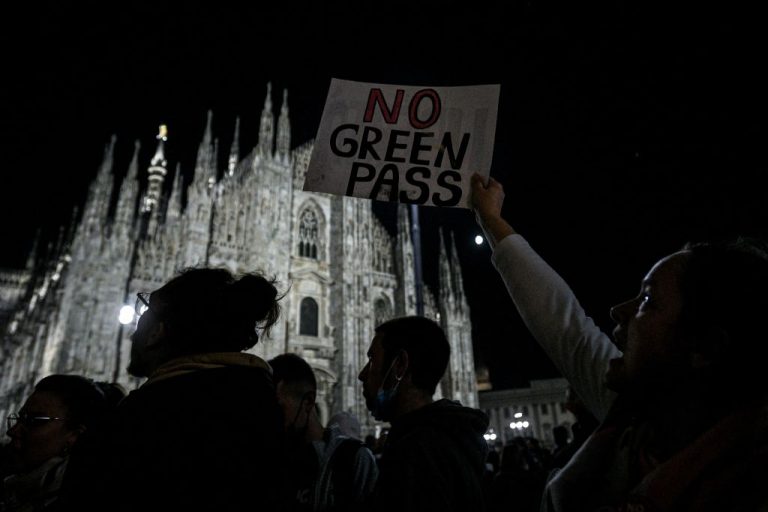The Italian government has tightened restrictions on citizens who have not yet been vaccinated against COVID-19. According to the new rules that came into effect on Dec. 6, unvaccinated individuals are not allowed inside establishments such as restaurants, bars, clubs, cinemas, and sporting events.
Only those who are vaccinated or who have recently recovered from the infection are allowed entry to such establishments. The restrictions against unvaccinated people are scheduled to last until Jan. 15.
The government has empowered the police to check whether diners in bars or restaurants have a valid super green health pass that certifies whether an individual is vaccinated or has recovered from the illness.
Some places are even denying entry for individuals who submit a recent negative COVID-19 test result. For checking into hotels or using local transport, a person still needs a “basic” health pass. People with a negative test result within the previous 48 hours can access these services.
The first individual to be fined under the new restrictions is a 50-year-old man. He was fined 400 euros ($450) for traveling on a bus without a basic health pass.
Success
You are now signed up for our newsletter
Success
Check your email to complete sign up
“It is an absolutely necessary measure… If we don’t want to go back to the restrictions that we have had to endure for a year and a half then we must adapt,” Marco Formichella, a resident of Rome, told Reuters.
Italy has a high vaccination rate yet has seen a surge of infections in the past weeks. Between Oct. 15 and Dec. 7, Italy’s new daily confirmed COVID-19 cases per million individuals jumped up 600 percent from 40.68 to 250.30. As of Dec. 7, over 73 percent of the Italian population has been fully vaccinated.
Three-and-a-half million people in their 30s to 50s are yet to take their first dose of the COVID-19 vaccine. Silvio Brusaferro, head of Italy’s National Health Institute, said this demographic has been hit the hardest by the virus.
The Delta variant remains the most prevalent strain. Only two cases of the recently emerged Omicron variant have been detected. The two individuals are businessmen who had traveled to southern Africa.
Earlier this year, Italy had imposed one of the strictest COVID-19 rules by requiring all workers to display green passes prior to entering their workplace. Those who do not show the pass are to be fined up to 1,500 euros ($1,730) or suspended without pay.
The rules are expected to be in effect until the end of this year. Numerous Italians had protested in the streets against the decision at the time, chanting slogans like “Liberta” (freedom).














